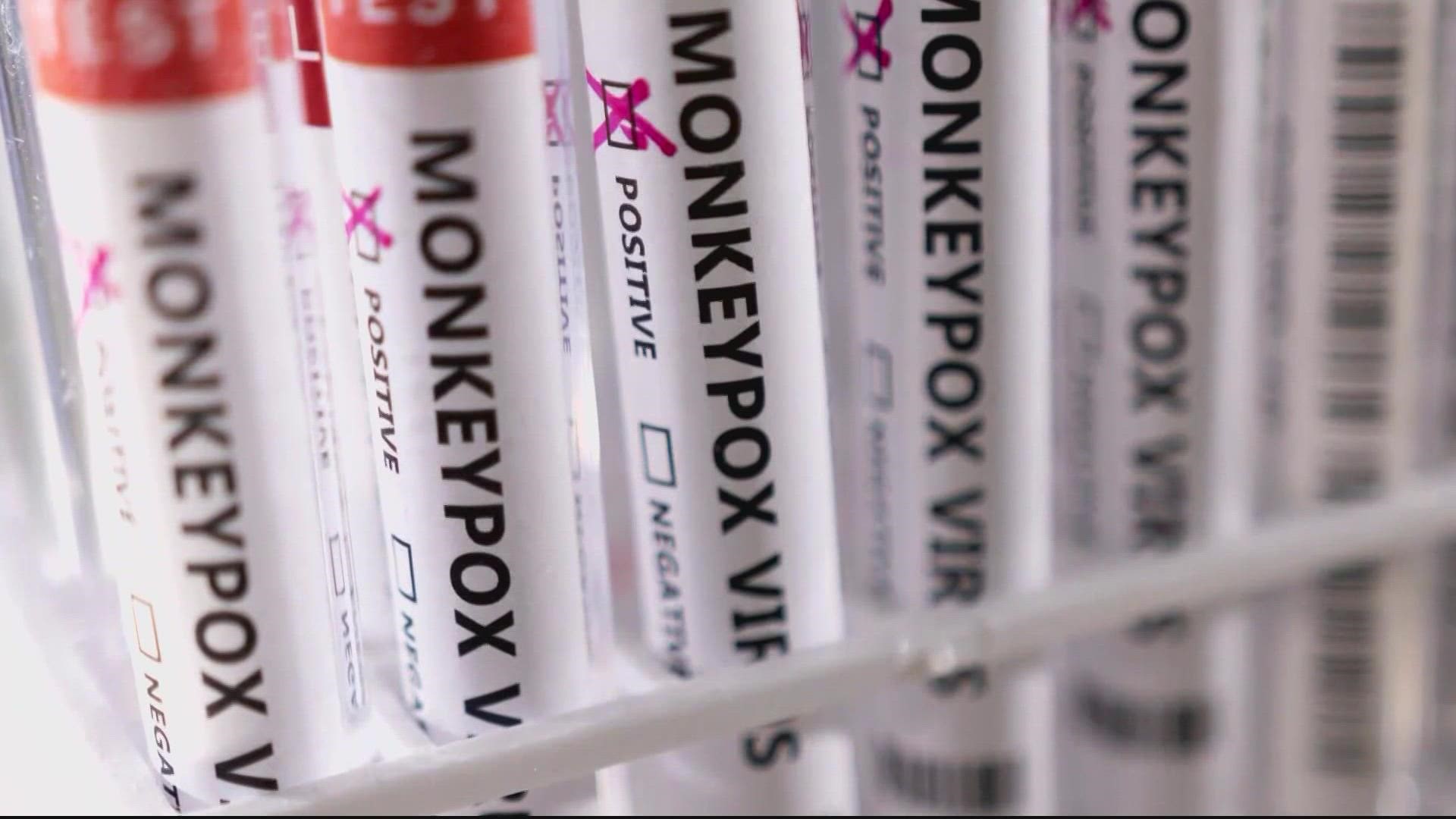WASHINGTON — DC Health officials and the Washington Blade held a public town hall Monday evening to answer questions about the spread of monkeypox. The District is one of the hotspots in the U.S., with the most monkeypox cases per capita.
Currently, 172 people in the District have monkeypox, according to DC Health. roughly 90 percent of those cases have also been among members of the District's LGBTQ community.
“We need to create forums where we can have honest dialogue about what this means to our community, [and] how it's affecting our community disproportionately," Kevin Naff, editor of the Washington Blade.
Just as the World Health Organization declared the outbreak a public health emergency of international concern, D.C. announced they would make more monkeypox vaccinations available. Over the weekend, 5,500 people on the waiting list learned they’d be able to receive the shot. But many are still waiting for doses, and D.C. Mayor Muriel Bowser estimates D.C. will need approximately 100,000 vaccines.
"We have seen significant interest among D.C. residents in getting vaccinated," Bowser said.
In order to better serve those who need the vaccine, DC Health announced it would only provide the first dose of vaccines to high-risk community members going forward. The first wave of second doses was set to begin Thursday, however, those scheduled appointments have now been postponed.
“We've made the decision, based on the data of the product, to take those doses that were destined to be second doses and make those first doses so that we can get them out into the community more to be able to more quickly contain the virus," said DC Health Senior Deputy Director Patrick Ashley.
Another DC Health official also announced at the town hall that D.C. will open another vaccine site in either Ward 7 or 8 later this week.
“There is going to be another site opening, later this week, on the other side of the river," said DC Health Senior Deputy Director Clover Barnes.
D.C. currently has enough vaccinations for 70% of its eligible population to receive one dose of the vaccine. Those eligible include:
- Gay, bisexual and other men 18 and older who have sex with men and have had multiple sexual partners or any anonymous sexual partners in the last 14 days
- Transgender women or nonbinary persons assigned male at birth who have sex with men
- Sex workers
- Staff at establishments where sexual activity occurs including bathhouses, saunas, sex clubs
While WHO says 99% of cases have been seen so far in gay and bisexual men, officials are urging everyone to remain vigilant. Anyone can catch the virus according to the CDC, primarily through close physical contact, through body fluids, sores or contaminated clothing or bedding.
"While most cases are occurring in individuals identifying as members of the LGBTQ+ community, this is not a disease of that community alone," Dr. LaQuandra Nesbitt, the director of D.C. Health, said. "Anyone can contract it and we cannot create stigma. We encourage people to look out for symptoms."
Initial symptoms include fever and headache, sore throat and cough, swollen lymph nodes, back and muscle pain, chills and lack of energy, followed by a rash that can look like pimples or blisters.
The latest CDC figures, updated July 22, claimed DC made up about 6% of the monkeypox cases across the United States, averaging about eight new cases per day. Maryland is reporting 71 cases and Virginia has 40.
The first two cases of monkeypox in children have also been confirmed, one of them in D.C. The CDC says the child diagnosed is a non-U.S. resident infant who was confirmed while traveling in D.C. The other child is in California, and the CDC says the two cases aren’t related.
"This virus is spread predominately via close physical contact although there is some data to suggest that it might be transmissible also droplets and aerosols," said Dr. Jonathan Reiner, Professor of Medicine and Surgery at George Washington University.
The town hall with DC Health took place at 7 p.m. at Eaton DC. Watch the full town hall meeting below.

